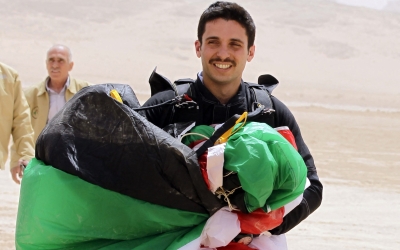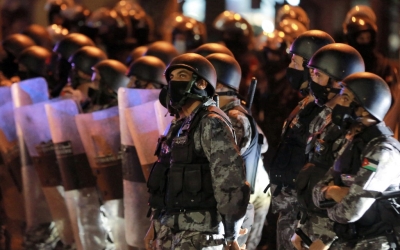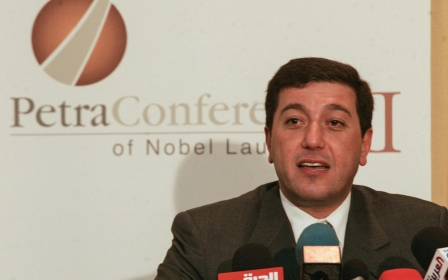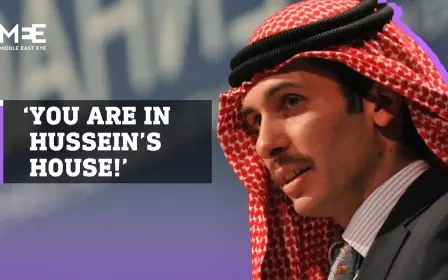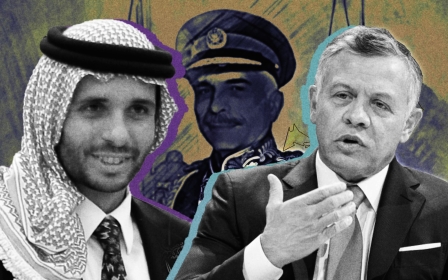Jordan minister says threat from former crown prince 'contained'
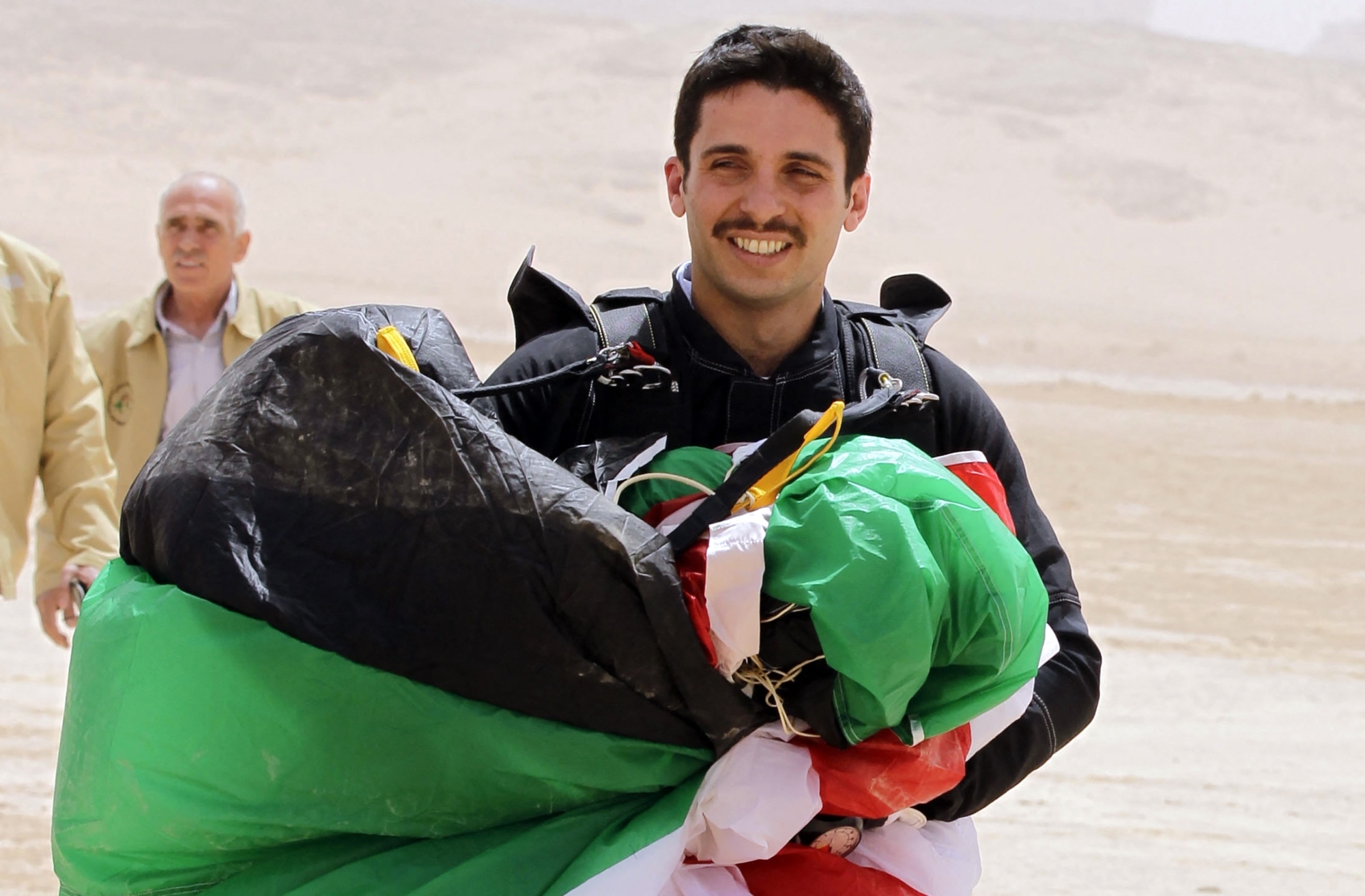
The threat posed by Jordan’s former crown prince has been neutralised, the kingdom's deputy prime minister said in an interview, days after Amman conducted arrests over suspicions of an alleged coup plot.
“In regards to the movements and threats they represented, these are totally contained and under control,” Ayman Safadi, told The Wall Street Journal.
New MEE newsletter: Jerusalem Dispatch
Sign up to get the latest insights and analysis on Israel-Palestine, alongside Turkey Unpacked and other MEE newsletters
Former crown prince Hamzah bin Hussein, King Abdullah’s half brother, claimed that he was placed under de facto house arrest on Saturday over his contacts with disaffected tribal leaders and others in Jordan deemed critical of the king.
Safadi said that while the prince did not pose an immediate threat, the crackdown had been a reaction to his activities, which he said were aimed at fueling popular discontent in Jordan and portraying himself as an alternative to Abdullah.
At least 16 people accused of "undermining the security" of Jordan were arrested in the large-scale campaign, including royal family member Sharif Hassan bin Zaid, Prince Hamzah's office director Yasser al-Majali, and Adnan Abu Hammad, who manages Hamzah's palace.
Safadi said that Prince Hamzah sought to destabilise the country in order to “ride on the wave of that. He thought this dissent will do the job.”
Timelines and logistics for the prince’s plans were in discussion, but stopped well short of a coup, WSJ quoted the minister as saying.
Hamzah released a recording of the conversation between himself and Major General Yousef Huneiti on Sunday, as a sort of insurance policy, the contents of which were shared with Middle East Eye.
In the recording, made on Saturday morning, Huneiti can be heard warning Prince Hamzah against talking to tribal leaders and others disaffected in the kingdom, as he placed him under house arrest.
Huneiti, however, did not accuse the former crown prince of attempting a coup or maintaining contacts with foreign powers, according to the tape of the conversation.
Dramatic U-turns
Hamzah, who was crown prince until King Abdullah removed him from the post in 2004, harshly criticised Jordan's leaders on Saturday, accusing them of corruption and serving only their own interests.
But in a turnaround Monday night, he pledged allegiance to King Abdullah and the government following mediation by the royal family. Hamzah signed a letter affirming his support for the current king and crown prince.
"In light of the developments of the past two days, I place myself in the hands of his majesty the King. I hereby affirm that I shall remain observant to the covenant of the forefathers and loyal to their legacy, walking their path, sincere to their history and mission and to his majesty the king, adhering to the constitution of the dear Hashemite Kingdom of Jordan," he wrote.
"I shall always be an aid and support for his majesty the king and his crown prince.”
On Tuesday, the government banned local media from discussing the royal-family matter, in order to keep the security services' investigation secret.
But in a reversal on Wednesday, Amman's Attorney General Hassan Abdallat said the gag order only relates to publishing information on the investigations and the people involved, and does not include “expressing of opinion and freedom of expression and opinion under the framework of the law.”
Press freedom watchdog Reporters Without Borders (RSF) had condemned the "gag order" on reporting about the tensions.
Middle East Eye delivers independent and unrivalled coverage and analysis of the Middle East, North Africa and beyond. To learn more about republishing this content and the associated fees, please fill out this form. More about MEE can be found here.


